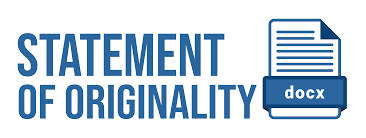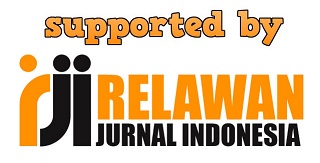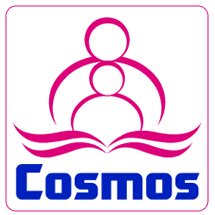ESP in Practice: A Literature Review of Challenges Faced by Teachers and Learners
DOI:
https://doi.org/10.61672/eji.v9i2.3003Keywords:
English for Specific Purposes (ESP, ESP Challenges, Authentic Materials, Teacher Challenges, Learner’s ChallengesAbstract
ESP means teaching of English for vocational or professional purposes. ESP concentrates on giving students the language skills required for efficient communication in specialized fields. This literature review investigates the major instructional challenges faced by educators and learners in English for Specific Purposes (ESP), particularly those related to content knowledge gaps, lack of authentic materials, curriculum alignment, and technological limitations in specialized academic and vocational settings. This review identifies five major challenges: (1) a gap in subject-matter knowledge among ESP instructors, (2) a lack of authentic, field-specific learning materials, (3) learners’ struggles with technical language and genre-specific discourse, (4) inadequate needs analysis and curriculum alignment, and (5) technological limitations that hinder digital integration. The findings suggest that many ESP programs fall short due to a lack of institutional support, insufficient teacher training, and weak collaboration between language educators and content experts. To address these challenges, the review recommends interdisciplinary cooperation, the development of contextually relevant resources, continuous needs assessment, and strategic use of educational technology. These steps are essential for improving the relevance and effectiveness of ESP instruction in diverse educational and professional settings.
References
Barnhardt, C. L., Sheets, J. E., & Pasquesi, K. (2015). You Expect What? Students’ Perceptions as Resources in Acquiring Commitments and Capacities for Civic Engagement. Research in Higher Education, 56(6), 622–644. https://doi.org/10.1007/s11162-014-9361-8
Basturkmen, H. (2021). ESP research directions: Enduring and emerging lines of inquiry. Language Teaching Research Quarterly, 23, 5–11. https://doi.org/10.32038/ltrq.2021.23.02
Daulay, E. (2021). a Study on English Specific Purpose for English Department. Vision, 17(1), 1–8. https://doi.org/10.30829/vis.v17i1.1023
Gao, F. (2021). Narrative inquiry into Chinese university ESP teachers’ transformative learning (Doctoral dissertation, Purdue University).
Ginusti, G. N. (2023). The Implementation of Digital Technology in Online Project-Based Learning during Pandemic: EFL Students’ Perspectives. J-SHMIC: Journal of English for Academic, 10(1), 13–25. https://doi.org/10.25299/jshmic.2023.vol10(1).10220
Gu, H., Bo, H., & Ren, L. (2019). Developing ESP Teaching Materials Based on the Analysis of Information Engineering Majors’ Needs. Open Journal of Social Sciences, 07(10), 121–131. https://doi.org/10.4236/jss.2019.710011
Haryudin, A., Yana, Y., & Efransyah, E. (2020). An Analysis of Developing English Teaching Materials at the Vocational High School in Cimahi. P2M STKIP Siliwangi, 7(1), 11-19.
Hikamah, S. R., Suhadi, Rohman, F., & Kurniawan, N. (2021). Developing virtual communication skills in online learning based on modified PBL during the COVID-19 pandemic. International Journal of Education and Practice, 9(2), 323–339. https://doi.org/10.18488/journal.61.2021.92.323.339
Mensah, R. O., Agyemang, F., Acquah, A., Babah, P. A., & Dontoh, J. (2020). Discourses on Conceptual and Theoretical Frameworks in Research: Meaning and Implications for Researchers. Journal of African Interdisciplinary Studies, 4(5), 53–64.
Nǎdrag, L., & Buzarna-Tihenea, A. (2017). The benefits of using authentic materials in the ESP classroom. Case study. Analele Universitatii Ovidius Constanta, Seria Filologie, 28(1), 137–150.
Nekrasova‐Beker, T., Becker, A., & Sharpe, A. (2019). Identifying and teaching target vocabulary in an ESP course. TESOL Journal, 10(1), e00365.
Purnomo, B.R., Adiguna, R., Widodo, W., Suyatna, H. and Nusantoro, B.P. (2021), "Entrepreneurial resilience during the Covid-19 pandemic: navigating survival, continuity and growth", Journal of Entrepreneurship in Emerging Economies, Vol. 13 No. 4, pp. 497-524. https://doi.org/10.1108/JEEE-07-2020-0270
Rahman, M. (2015). English for Specific Purposes (ESP): A Holistic Review. Universal Journal of Educational Research, 3(1), 24–31. https://doi.org/10.13189/ujer.2015.030104
Sari, F. P., Hafifah, G. N., & Mayasari, L. (2020). The Use of Authentic Material in Teaching Reading Descriptive Text: Review of Literature. Academic Journal Perspective: Education, Language, and Literature, 8(2), 122–134. https://doi.org/10.33603/perspective.v8i2.4365
Suherman, A., & Kertawijaya, L. (2023). Challenges perceived by Indonesian ESP teachers in post-pandemic era: A survey from a higher education institution. SCOPE: Journal of English Language Teaching, 7(2), 129-136. https://doi.org/10.30998/scope.v7i2.15526
Tymbay, A. (2022). Balancing Authentic Content and “Hot Topic” Discussions in an Esp Classroom. ESP Today, 10(2), 310–328. https://doi.org/10.18485/esptoday.2022.10.2.6
Wahyudi, W., & Jufrizal, J. (2023). The Need of English for Specific Purposes in Vocational High School. AL-ISHLAH: Jurnal Pendidikan, 15(3), 3084–3093. https://doi.org/10.35445/alishlah.v15i3.3047.
Wulandari, V., & Waloyo, E. (2018). The Portrait of Authentic Material in Teaching English for Specific Purposes (Esp) At Smk Negeri 2 Cirebon. ELT Echo : The Journal of English Language Teaching in Foreign Language Context, 3(2), 97. https://doi.org/10.24235/eltecho.v3i2.3563
Widodo, H. P. (2015). The development of vocational English materials from a social semiotic perspective: Participatory action research. Unpublished PhD thesis). The University of Adelaide, Australia.
Downloads
Published
Issue
Section
License
Copyright (c) 2025 Dilla Sintia, Indra Perdana, Elanneri Karani

This work is licensed under a Creative Commons Attribution 4.0 International License.




















